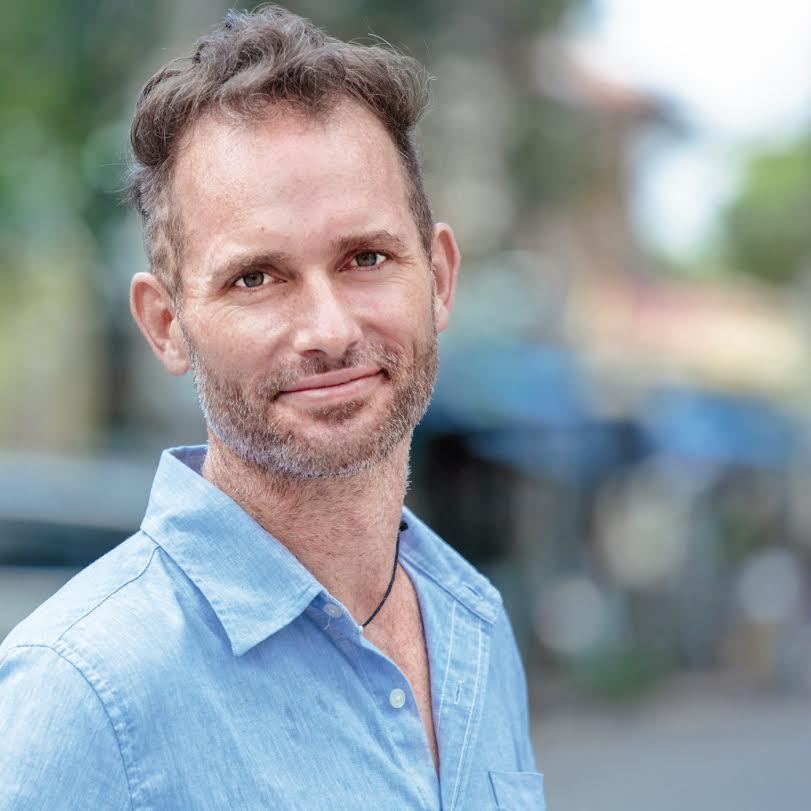Kris Reid Speaks with Richard Phu on His Success of Growing His SEO Business
There’s only one Coolest Guy in SEO, and that’s Kris Reid, the founder of Ardor SEO. But, do you ever wonder how he became one? Richard Phu, the host of Forge Your Life, talks with Kris about the latter’s journey of becoming an online marketing authority.
Richard Phu Sets the Way to Freedom

Richard Phu is the founder and virtual COO of Freedom Systems. He also currently hosts Forge Your Life, which is a fitting podcast for his mission.
He wants to help business owners run their enterprises without the shackles. He uses his corporate experience of working for clients, like Nestle and Deutsche Bank, to assess, design, and improve business systems.
He runs an online coaching service for men and shares his expertise in various platforms. These include Men’s Muscle, Entrepreneur, and Foundr. He also worked with inspirational leaders, like Neil Patel, Tony Horton, and John Dwyer.
Richard is also the operations manager of Outsourcing Angels, which helps customise systems so businesses can run without micromanagement.
Kris Reid: From Brisbane to London
In this podcast, Kris Reid provides listeners a better background of who he was before he founded Ardor Media Factory and became the Coolest Guy in SEO.
Kris is an Australian who grew up in Brisbane, where he took up software engineering. He travelled to London to work.
There, he found success in the finance industry. He designed and created different desktop applications. He was so good at what he did that he usually received pay raises.
Then, the 2007-2008 Financial Crisis happened. Unfortunately (or perhaps fortunately), the company laid off many people, including Kris.

He eventually found his way to Russia. Being so new in a foreign country, he couldn’t speak the language yet. He also couldn’t get a job.
That’s when he focused his attention on internet marketing, including search engine optimisation (SEO).
What Changed Everything
Kris developed a mobile game called Mob Warrior. He needed to get the word out, and thus, he started learning about SEO.
It also dawned on him that he could actually make some money out of it. More than anything, he wanted to do one thing: live a fuller, better life.
He found himself in a massive European project that involved 400 developers—but it was also soul destroying.
“It didn’t matter if you work really hard. It didn’t matter if you do nothing. It’s just no one cares because you’re this cog in this giant machine... That’s not very fulfilling,” he admits.
Kris also used to work as a consultant and enjoyed pay raises every time he got a job. When the financial crisis hit, he struggled looking for work that could give him more than what he earned before.
In this podcast, he shares how much such a shift improved his quality of life. He mentions how he had to wrestle with waking up early in the morning while he was still in London. He hated alarm clocks.
Today, he can wake up anytime he likes, and he hasn’t set an alarm clock since.
“I wanted to find some happiness and fulfillment in life, and do something that is important,” he adds.
The Universe Paved the Way
Kris shares that his SEO business has always served international clients. But, although it’s already huge, he didn’t take it seriously at first.
“I had a pretty good savings account, so it didn’t really matter much to me,” he says.
During the first year, he travelled to different countries with his then-girlfriend. By the second year, they were so broke he couldn’t afford a return ticket to Australia to attend his sister’s wedding.
The universe conspired, however. Around the same time, he received an SEO job worth $1,000!
He talks about this amazing experience, “It’s just like the universe kept on aligning me to get to the next stage.”
It became even more tangible when he opened an office in the Philippine and, later, in Cambodia.
While he already had a team of online staff, seeing and interacting with his employees in the same space made his business feel more real.
Creating a People Company
When Richard goes on to ask about Kris’s mindset about his first hire, Kris proceeds to share about his company culture, which centres around people.
Like most home-based workers, many of such employees under his team used to earn according to output. Today, his team in Davao, Philippines receives a regular salary.
He says, “I would want people to dedicate to the company and hopefully be with us forever. We try to make a nice office environment where everyone is respected, feels comfortable, and enjoys their job. They have the ability to learn new things.”
He believes that if one teaches their employees, appreciates them, and lets them work at what they’re good at, they can build loyalty.

Why the Philippines and Cambodia?
Perhaps, one of the most interesting questions Richard asks Kris in this podcast is, “Why the Philippines and Cambodia?” To be specific, “Why Davao and Phnom Penh when Kris could have chosen other popular cities in Asia like Singapore or even Manila?”
For Kris, it all boils down to two things:
Davao and Phnom Penh may be miles away from each other, but they share many similarities:
Kris acknowledges that sometimes he struggles finding people to join the team, but so far, the people he has right now deliver.
Making SEO Work for Businesses
When asked about some major shifts in SEO and how businesses can take advantage of such trends, Kris points out the following:
He stresses the importance of having content that the users want to see. Even if it’s best written, it can still be “rubbish”.
For instance, it could be too technical. Some may write expert-level content even if their customers are not. It is necessary for content marketers to understand who their audience is.
Kris also shares that he believes in the 90/10 rule, which is “90% of your time should be creating content and 10% goes to building exposure, such as thorough link building.
“No business stands alone,” he says. Business owners should strive to build networks to make others know they exist.
One good idea to do that is creating partnerships with non-competing, but complementing, industries or niches. For example, a marketer selling ovens may want to reach out to bakers and write recipes for them, highlighting the benefits of their products.
Go ahead and listen to the full episode of this fun podcast here. You can also watch it on YouTube.
Don’t miss Kris’s answer to the show’s signature question.
